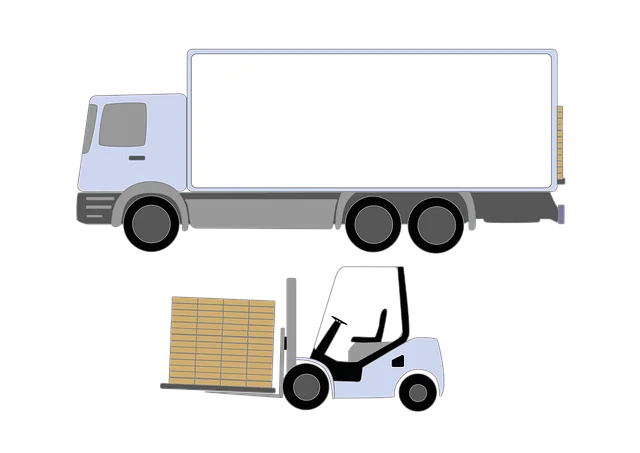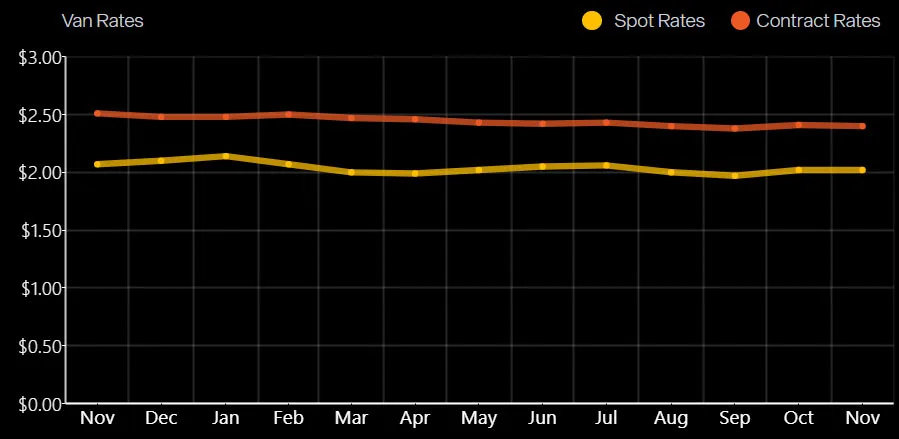Carrier contracts are an essential part of any shipper’s logistics strategy. However, as market conditions shift, your existing contracts may no longer meet your needs. Updating carrier contracts ensures that your shipping costs are optimized, and service levels remain reliable. In this article, we’ll explore the different contract types available, why it’s essential to work with specialists like Translogistics, and how technology can help streamline the process.
Ensure Competitive Pricing with TLI’s Data-Driven Negotiations
At Translogistics, we ensure that the rates you’re offered by carriers are competitive and aligned with your best interests. When carriers propose a General Rate Increase (GRI) or a price hike, such as a 3% increase, we don’t just accept the change at face value. Instead, we leverage your historical data and run it through our powerful rating engine, comparing the new tariff or contract terms with past performance. This allows us to precisely calculate the actual price impact, identify areas where costs may rise unexpectedly, and pinpoint opportunities for more effective negotiations. By using real data to assess pricing, we help you ensure that you’re getting the best possible deal and prevent paying more than necessary.
Understand the Different Contract Types for Mode and Pricing
Carrier contracts come in different types, each tailored to specific shipping needs and freight modes. So if you are multi-modal, routing both LTL and FTL freight you may need multiple contract types. Some of the most common shipping contract types are:
- Dynamic Pricing Contracts: These contracts adjust rates based on real-time market conditions. Shippers benefit from the flexibility of pricing that can change according to factors like demand, fuel prices, and carrier capacity.
- Density-Based Pricing Contracts: These contracts calculate rates based on the weight and volume of the freight, allowing for more accurate cost assessments. Larger or denser shipments may qualify for lower rates under this model.
- Point-to-Point Rates: Fixed pricing for shipments between specific locations, often ideal for regular routes with predictable volumes.
- Blanket Pricing: Standardized rates for multiple shipments over a set period, providing cost stability across recurring shipments.
- Custom Shipper Pricing: Tailored rates based on a shipper’s unique needs, such as volume, specific routes, or special handling requirements.
Shippers often have to choose the right pricing model to align with their shipping patterns. Managing these contract types manually can be complex, but specialists like Translogistics can simplify the process. With our advanced TMS technology and carrier integrations, we can handle these pricing models and ensure your contracts stay current and cost-effective.

Delegate Contract Management to Experts
Managing carrier contracts requires deep knowledge of the market and pricing structures. Shippers should delegate this responsibility to specialists like Translogistics. We use sophisticated tools and TMS technology to help you navigate different contract types and ensure you get the best rates possible.
Our TMS platform integrates directly with carriers, enabling us to manage contract terms and pricing models, such as dynamic pricing and density-based pricing. This integration automates much of the contract management process, saving you time and reducing the risk of human error.
Additionally, our system leverages your historical data to create accurate point-to-point pricing, ensuring that your contracts reflect your true shipping needs.

Utilize Historical Data for Accurate Pricing
One of the most effective ways to update your carrier contracts is by using your historical data. With access to past shipments, we can analyze patterns in your freight movement and apply this data to determine the most accurate pricing for future shipments.
At Translogistics, we can take your historical data and use it to calculate point-to-point pricing. This ensures that your carrier contracts are based on real, historical insights rather than generic estimates. When your contracts are rooted in accurate data, you gain a competitive edge in the marketplace, and your shipping costs are optimized.
Leverage FTL Spot Market Pricing When Needed
Sometimes, freight does not fit into the standard contracted rates or is inconsistent in volume. For these situations, Translogistics can utilize FTL spot market pricing. This option is particularly useful when shipments are not frequent enough to justify a contract or when the volume varies.

Currently, the spot market for FTL freight is looser than contracted rates, so the cost may seem lower. However, with contracts offering guaranteed capacity, locking in a rate now while the market is weaker can be a smart move. At Translogistics, we are experts at managing both spot market pricing and long-term contracts, ensuring that you’re always getting the best value for your shipments.
Lock in Contracts While Rates Are Favorable
As of 2024, the market is experiencing weaker conditions, making this an ideal time to secure contract rates. While spot market prices may appear more appealing in the short term, contract rates provide the benefit of guaranteed capacity and stable pricing, which can be crucial in times of capacity shortages.
Now is a great opportunity to lock in motor carrier contracts while the transport market is still flexible. By working with Translogistics, we can negotiate favorable contract terms for you, giving you more predictable costs and reliable service, even as market conditions fluctuate.

Customize Your Carrier Contracts to Fit Your Unique Needs
Every shipper has unique needs that require customized contract terms. Translogistics offers tailored contracts that consider various factors such as:
- Accessorial Charges: Additional costs like liftgate fees, residential delivery, or fuel surcharges.
- Freight Class Ranges: Including negotiated Freight All Kinds (FAK) rates to cover a wide variety of freight types.
- Cargo Liability Coverage: Ensuring proper insurance coverage for high-value shipments.
- Excess Length Needs: Special considerations for freight that exceeds standard dimensions.
These factors, along with many others, all play a role in determining the rates for your carrier contracts. Translogistics works with you to customize contracts that fit your shipping profile. Our TMS platform then automates all these terms, generating all-in rates that reflect the true cost of shipping, eliminating hidden fees and surprises.
